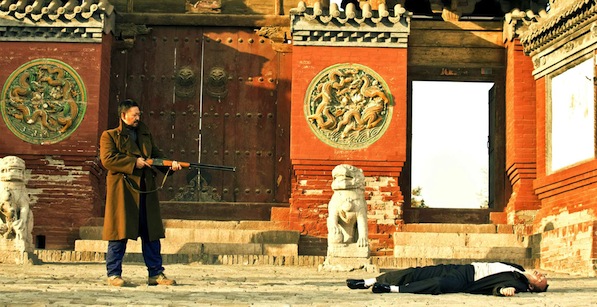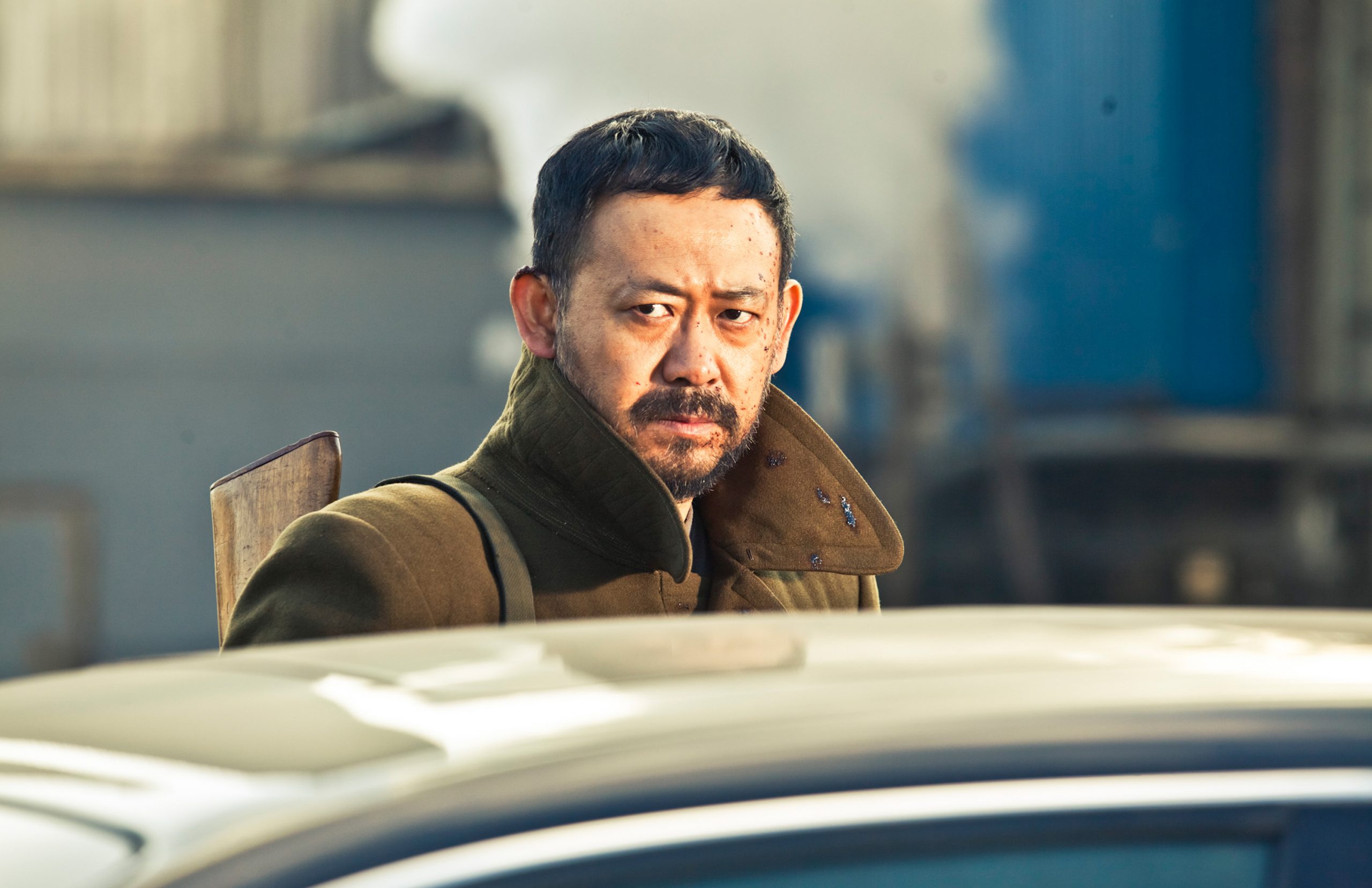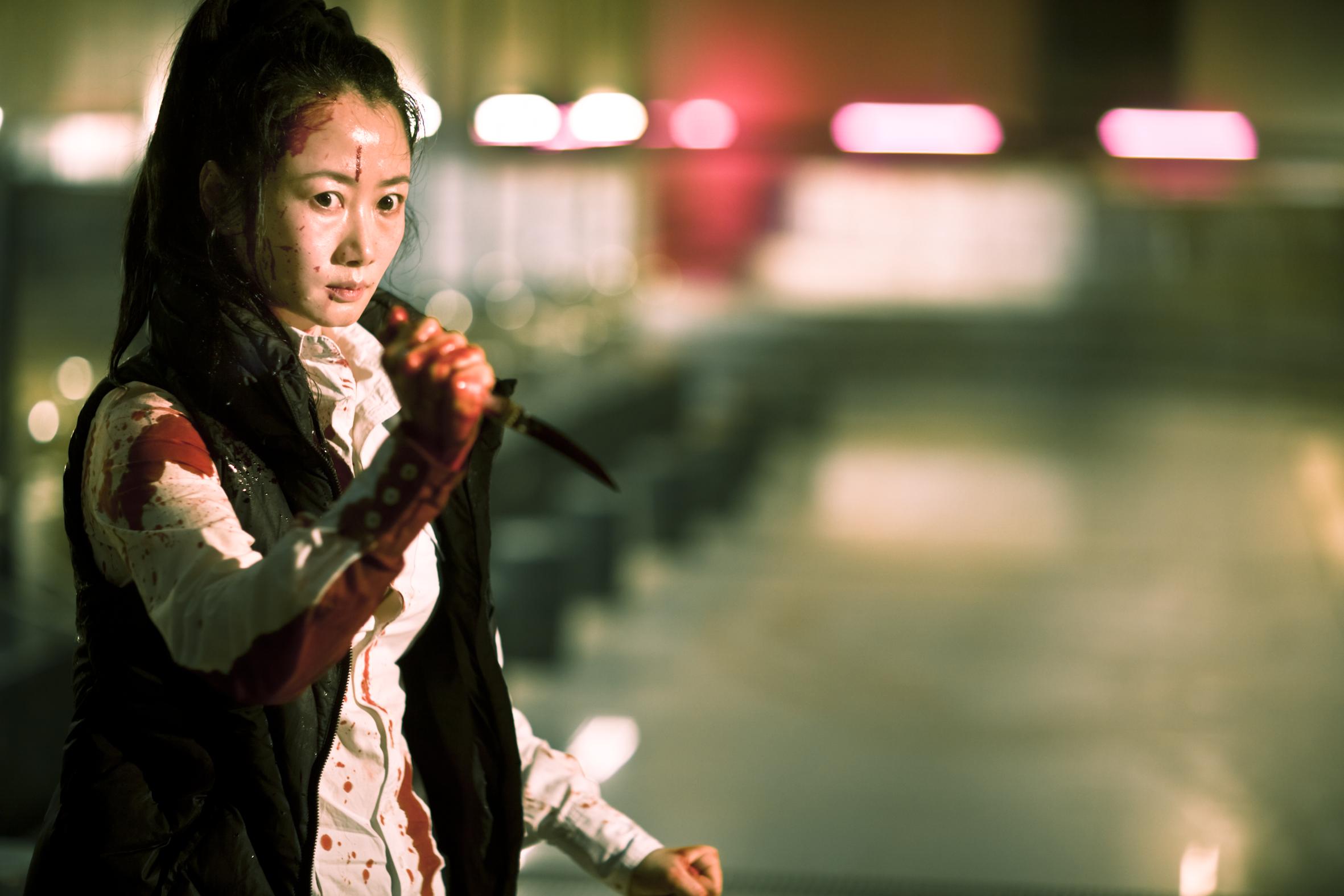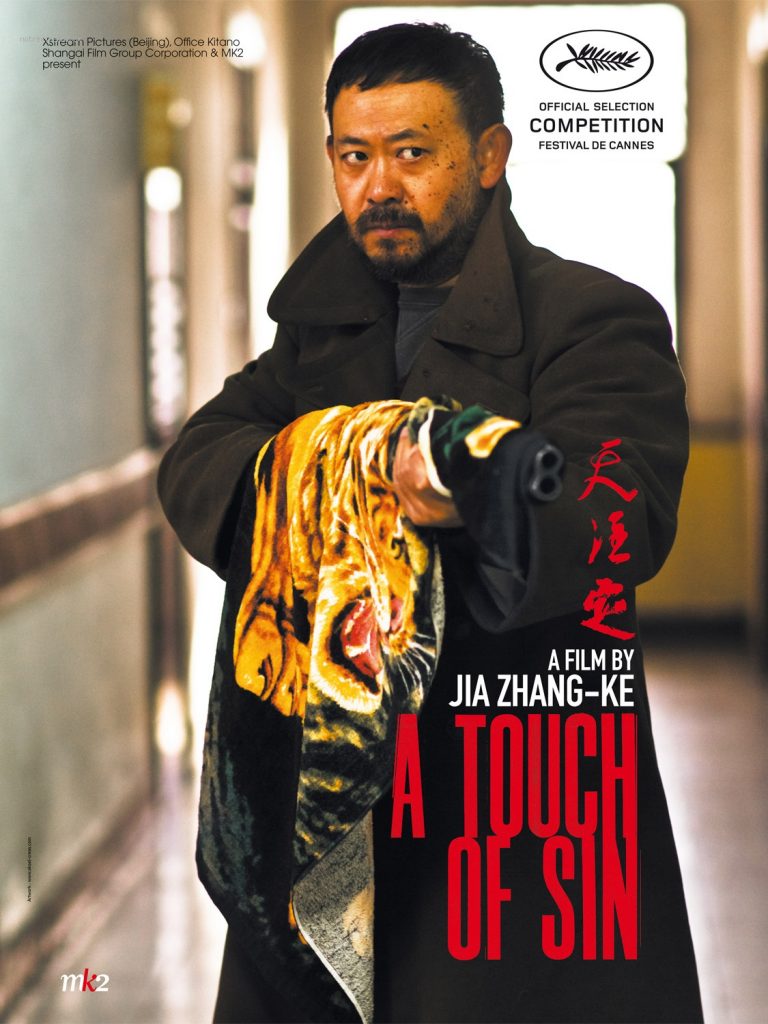True to its title, A Touch of Sin generated heat at Cannes, where it won Best Screenplay as well as a controversial reception for Jia Zhangke, who I managed to sit and talk with mere hours after the film’s international premiere. The winning, discussion-generating film is now part of Karlovy Vary International Film Festival and its four stories of four protagonists fighting against injustice and violence paint a rich and multidimensional portrait of social inequalities in contemporary China. The subject—human nature—lends a universality to what would otherwise be an exotic film experience.
Keyframe: The film is based on four true stories from China’s recent past. Is that right?
Jia Zhangke: These are events that have been highly publicized throughout recent years, mostly via social platforms and then became widely discussed in print as well. I fictionalized everything that’s in in the film, so I think that for an international audience it should be clear, even though they are not aware of what really happened [in China].
Keyframe: The way you present violence reminds me of Quentin Tarantino. Do you consider him an inspiration?
Zhangke: For the past few days I’ve been hearing similar comparisons! Of course I like Tarantino and his work very much. But my biggest inspiration and influence are King Hu films, the ones he created back in the seventies. In his movies, he addresses the subject of political oppression and violent individuals’ reactions to it. I’ve been wanting to shoot a film about violence for a long time, but I couldn’t find a cinematic language that I’d be happy with. And then my thoughts went back to martial arts, and it struck me how things that are happening now highly resemble events from the past. I thought: Why not do it like that?
Keyframe: Was your relationship with Takeshi Kitano in any way vital for the theme of violence, which you engage so eagerly in this film?
Zhangke: I’d been working with Office Kitano when I was making The Platform in year 2000. It was about young people’s lives from 1979 to 1989, the first ten years of China’s progress. This happens to be my fourth project they’ve decided to support financially. In the past, the movies didn’t have the same violent streak. I have always liked Kitano’s movies. He has managed to established a very strong connection between violence and loneliness.
Keyframe: Where does your budget come from?
Zhangke: One of the producers, Shanghai Film Group, is the state organization for example. But this movie has both been funded by the state and private, independent entities.
Keyframe: Would you ever consider shooting outside of China?
Zhangke: I have wide interest in terms of movie-making and I am open to trying new things. If I am happy with the project, I’d definitely do it.
Keyframe: What was the hardest aspect of making this project happen?
Zhangke: I’d say the action part. It is difficult for me, because it’s new. How should a character shoot, how should a character use a knife? How should a victim fall? Luckily, I was collaborating with professionals and got a lot of help from them. I used one theme, but I wanted to make sure I covered all of its aspects, which is why I’ve decided to tell four separate stories. Which bring me to another problem: how should a narrative work? I had approximately thirty minutes for each story. How should I tell it clearly within such rigid time-frame? How effective could my storytelling be?
Keyframe: It seems to be your most pessimistic film, one full of… well, rage. Is this your response to the New Order in China?
Zhangke: Some people do feel a sense of nostalgia towards the past, but this is not necessarily a good thing. We are going through a tough phase right now, but we’re also pushing for more openness. Both anger and the feeling of pessimism are emotions, personal emotions that we have to address in order to understand the reason behind them, rationally.
Keyframe: You seem to very poignantly highlight various types of gaps between the social layers.
Zhangke: These issues has been very widely addressed in the mainstream media; there has been a heated discussion around these subjects [for a long time now]. However, in the past, some of the issues I am talking about were not possible to show in a film, such as violence, or the gap between the rich and the poor that you asked about. I am deeply convinced that if we talk about them only through the mainstream media, but not through the language of art, it would be a shame and a lost opportunity.
Keyframe: Looking at your protagonists’ actions the conclusion could be that violence is the only way out of problems?
Zhangke: [Personally] I don’t think so. Violence is not a way out. I believe it’s the society’s responsibility to work together, in order to address the issue of violence and build a mechanism to deal with it.
Keyframe: There are three men and one woman in your film. Why such gender imbalance?
Zhangke: I included a female character, because I didn’t like the idea of making a film with only male characters. Violence happens regardless of gender. And my goal was to focus on this violent streak in human nature that is triggered by the environment. I have seen a lot of it in my own life. For example you see a fight on the street. Nothing serious necessarily happened, they might just be stressed out [so they start the fight]. The violence is also imposed on nature by people. For example in Bejing the air quality is very bad. And this is a punishment we receive for destroying nature.
Keyframe: Is this film engaging in the discussion over censorship in Chinese cinema?
Zhangke: Some directors speculate about whether their movies will pass the censorship board’s judgment or not. Sometimes, if they are not sure, they’ll abandoned the film mid-way. I think it’s a terrible pity. If we want to push for openness, we have to put belief and creative freedom in our work. I have to admit, I really have no idea what are the ‘taboo’ subjects are right now. For example, A Touch of Sin is a movie that would have not passed censorship in the past. But what I did was just complete it, no matter what. And the board didn’t complain. The message I’m sending to those who judge what can and what cannot be seen onscreen is that everything is possible. I can make a movie about anything I want.
Keyframe: Would you say, that your firm position in the international film industry might have been helpful? If they’d ax your project, that would mean scandal.
Zhangke: It is possible. But I think the main reason is that the authority starts to comprehend that we no longer can pretend certain subjects don’t exist.
Keyframe: Do you think the reception of your films in China and abroad might differ?
Zhangke: With this particular film it’s hard to say. It has had its media screening here, in Cannes, but the Chinese public has not seen it yet, only heard about it. What they talked the most about were the social issues and how much violence should be allowed in a movie. But in general they seem pretty content that a film like this could have been made.








